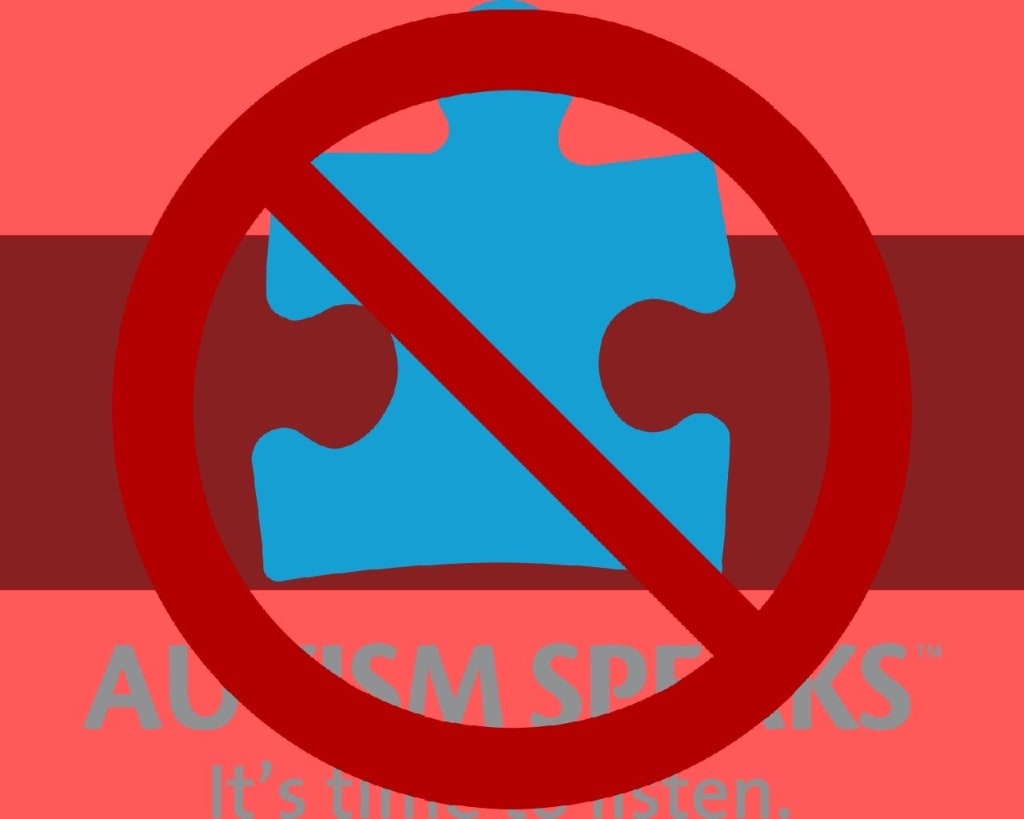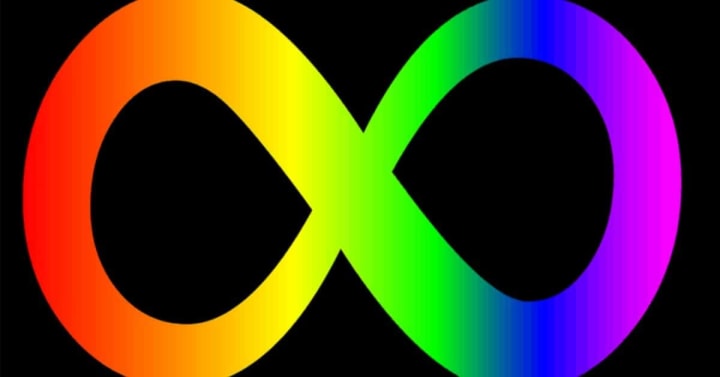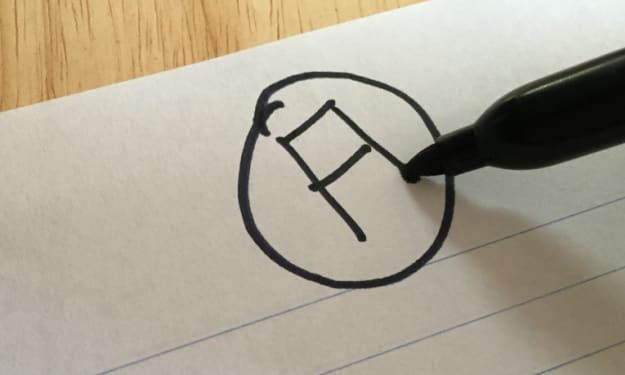Why You Shouldn't 'Light it Up Blue' this April
And what you can do instead to show support for your autistic friends and family

April, the designated Autism Awareness month, is here.
If you spend any time on social media, you'll be seeing a lot of blue puzzle pieces and rainbow-vomit ribbons from your friends with autistic kids.
I say "kids," specifically, because the vast majority of autistic folks don't support these symbols. Those who proudly display banners that say "Light it up Blue" and "I love someone with Autism" tend to be the allistic (non-autistic) parents and relatives of autistic children. Actually, some of these parents are in denial of their own autism, but that's a story for another day.
People who sport this autism paraphernalia do harm to the neurodivergent community without meaning to. Puzzle pieces and rainbows are promoted by Autism Speaks (A$), an organization that is highly disputed for its fear mongering and cure-seeking approach to autism.
Ads like the one below are scare tactics used by A$ to depict autism as a monster that torments children and destroys their parents' hopes and dreams.
You may be wondering how such a terrible ad was even allowed to air. Thankfully, it's been thumbed down into oblivion, which gives some hope that the majority of people aren't buying into it.
Yet, thousands of people buy the puzzle piece shirts and the rainbow ribbon keychains without realizing they are directly supporting Autism Speaks with their dollar, and serving as walking advertisements. We can go on and on about why A$ is bad, but it all comes down to two things:
1. They deny science by prioritizing a "cure" when autism is neurological--a brain-wiring that cannot be changed. Therapies like ABA are aimed at training harmless behavior out of autistic kids, and only teach them to mask their differences in adulthood; they do not eliminate them.
2. They are run by allistics and do not involve autistic people in their operations in any meaningful way. When it comes to autism awareness and acceptance, we believe in the adage "Nothing about us without us." A movement that claims to support autistic people but does not include us is not really for us at all.
In addition, it's been noted that the clashing primary colors and puzzle imagery can be seen as infantilizing. It adds fuel to the belief that autistics are a puzzle that needs to be solved, and that they remain "mentally children" their entire lives. It also sidelines adults on the spectrum by implying that autism goes away after adulthood.
It shouldn't have to be said that autistic children grow into autistic adults. Supports and services might end at 22, but autism is life-long. There is a lot of side swiping and dismissal of adult autistics by those in the A$ crowd, who want to center themselves. They do this by constantly focusing on how hard autistics make life for everyone around them, rather than promoting acceptance.
Now you can see why many autistics are against A$ and its "Light it up Blue" campaign, so what can you do instead if you want to support the autistics and neurodivergents in your life? Here are a few ideas:
1. Light it up Red (or gold) instead--an autistic led movement that spawned in protest of A$'s Light it up Blue. You don't have to buy anything or wear red all month, but helping to popularize this phrase may amplify the voices of those who are speaking out against A$.
2. If you want to wear or promote symbols, the infinity sign is generally vetted by the community as a good alternative:

3. Support ASAN (Autistic Self-Advocacy Network), the organization by and for autistics. https://autisticadvocacy.org/
4. This one is for all year round: Please don't tell autistic people that what they have is a "gift." It can be very minimizing when this hasn't been true for so many of us. Conversely, don't insist that autistic people should not be proud of who they are if they do see it as a gift.
Lastly and most importantly, try to remember that autism awareness isn't just about symbols; it's about acceptance as a whole. There are very few who would outright admit they hate autistic people. However, they do openly shun "weird," "creepy," "slow," "lazy," awkward, off-putting, unsociable, and inappropriate. In short, they judge people based on all the things that tend to go hand in hand with autism. Those "weird" people you come across may not even be autistic--or they might be. Accept them either way. Wearing an infinity sign without making an effort to be accepting doesn't do much good at all.
Most autistic people are trying very hard to accommodate the "normal" world and blend in. We wish more people knew that, but it's simply too tiring to explain this to everybody. We realize that absolutely everybody in this world is struggling with all kinds of issues and are not trying to take away from that. But autism is an invisible struggle, and it's worth reminding people that you can't always see what someone's dealing with on the outside. When you make a visible effort to show understanding, it makes the autistic people around you feel seen, and lets them know their struggles are "real."
Thank you all for reading and listening.
About the Creator
Nola Browning
quitting vocal because it’s a waste of my time.






Comments
There are no comments for this story
Be the first to respond and start the conversation.